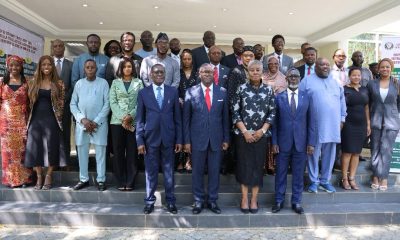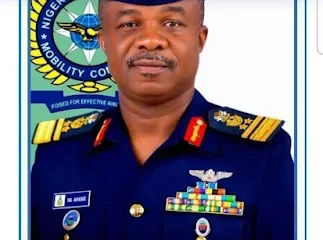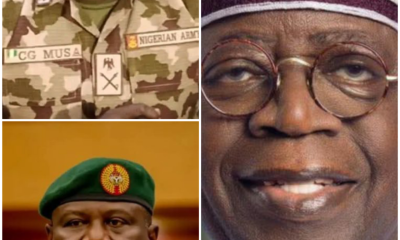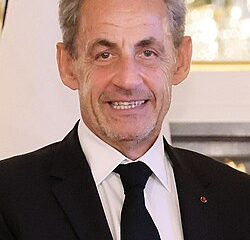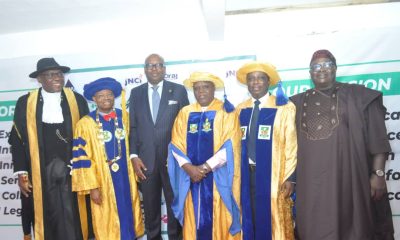NATIONAL NEWS
Former Nigerian President Muhammadu Buhari Dies In London Clinic At 82
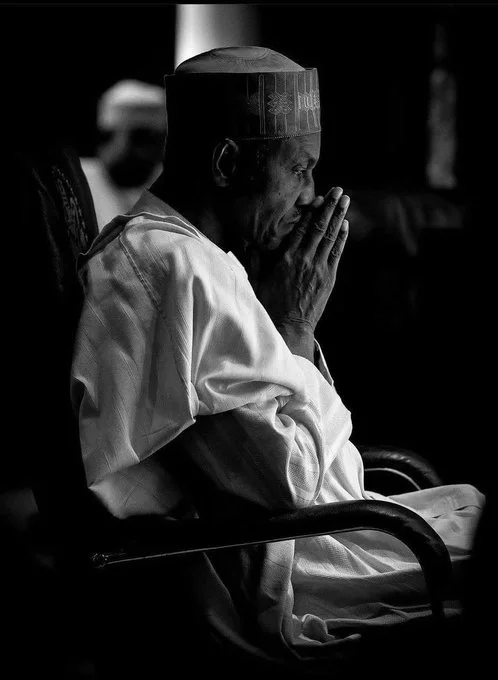
Former Nigerian President Muhammadu Buhari has died at the age of 82. Bashir Ahmad, his former aide, announced the news earlier today via X (formerly Twitter).
“The former president’s family has announced that Muhammadu Buhari, GCFR, died this afternoon in a clinic in London,” Ahmad said. “May Allah accept him into Aljanatul Firdaus. Amin.”
Buhari’s death marks the end of a significant chapter in Nigerian political history, having served as the country’s civilian president from 2015 to 2023 and as a military head of state from 1983 to 1985.
Buhari died in a London clinic, a place familiar to Nigerians after his lengthy absence from the country in 2017 for medical care.
While the nature of his illness was never officially disclosed, his lengthy stay in London for medical reasons sparked widespread concern and speculation in Nigeria.
The secrecy surrounding his health sparked increased scrutiny and calls for transparency from the public and opposition parties.
“The issue of President Buhari’s health has been a constant source of debate throughout his presidency,” said political analyst Dr. Fatima Bello.
“While the government attempted to maintain privacy, the prolonged absences undoubtedly influenced public perception and governance.”
Muhammadu Buhari was born on December 17, 1942, and his life was deeply intertwined with Nigeria’s political landscape. He rose through the military ranks before seizing power in a coup d’état 1983.
His tenure as military head of state was marked by a strict and disciplined approach to combating corruption and restoring national order. However, General Ibrahim Babangida overthrew his government in 1985.
After years away from politics, Buhari has emerged as a key figure in the opposition movement.
He ran in multiple presidential elections before winning in 2015, defeating incumbent President Goodluck Jonathan.
His victory was widely regarded as a triumph for democracy and a call to action.
As president, Buhari prioritised fighting corruption, combating the Boko Haram insurgency in the northeast, and enacting economic reforms. His administration implemented several anti-corruption initiatives, including the Whistleblower Policy and the recovery of large sums of allegedly stolen funds. However, critics claimed that the anti-corruption efforts were selective and politically motivated.
His efforts to combat Boko Haram yielded some success in reclaiming territory previously held by the terrorist organisation. However, the insurgency remains a major threat to the region’s stability.
Buhari’s administration faced significant economic challenges, including the 2016 recession and rising inflation. While implementing policies aimed at diversifying the economy and increasing domestic production, he received mixed reactions.
Some praised his efforts to reduce Nigeria’s reliance on oil, while others decried the perceived lack of economic growth and the impact of his policies on the cost of living.
Professor Adebayo Ogunleye, a historian who specialises in Nigerian politics, stated that President Buhari leaves a complex legacy.
“He will be remembered for his dedication to combating corruption and efforts to address insecurity. However, his administration was marred by economic difficulties and concerns about human rights.
The news of his death has already sparked an outpouring of emotion from across Nigeria and the international community.
Political leaders, civil society groups, and ordinary citizens have all expressed their condolences.
Further details about funeral arrangements are expected to be released by the family in due course, according to Islamic customs. Nigeria is expected to hold a period of national mourning.
The death of Muhammadu Buhari marks the end of an era and creates a void in Nigeria’s political landscape. His life and legacy will undoubtedly be analysed and debated in the coming years.
The nation now awaits additional information about the funeral and the official government response to this significant loss.
-
CRIME4 years ago
PSC Dismisses DCP Abba Kyari, To Be Prosecuted Over Alleged $1.1m Fraud
-
FEATURED4 years ago
2022 Will Brighten Possibility Of Osinbajo Presidency, Says TPP
-
FEATURED2 years ago
Buhari’s Ministers, CEOs Should Be Held Accountable Along With Emefiele, Says Timi Frank
-
BUSINESS & ECONOMY2 years ago
Oyedemi Reigns As 2023’s Real Estate Humanitarian Of The Year
-
SPORTS2 years ago
BREAKING: Jürgen Klopp Quits Liverpool As Manager At End Of Season
-
SPORTS2 years ago
Could Liverpool Afford Kylian Mbappe For €200 million? Wages, Transfer Fee
-
ENTERTAINMENT2 years ago
Veteran Nigerian Musician, Basil Akalonu Dies At 72
-
FEATURED2 years ago
Tribunal Judgement: Peter Obi Warns Of Vanishing Electoral Jurisprudence, Heads To Supreme Court
-
BUSINESS & ECONOMY2 years ago
Oyedemi Bags ‘Next Bulls Award’ As BusinessDay Celebrates Top 25 CEOs/ Business Leaders
-
FEATURED4 years ago
2023 Presidency: South East PDP Aspirants Unite, Demand Party Ticket For Zone

